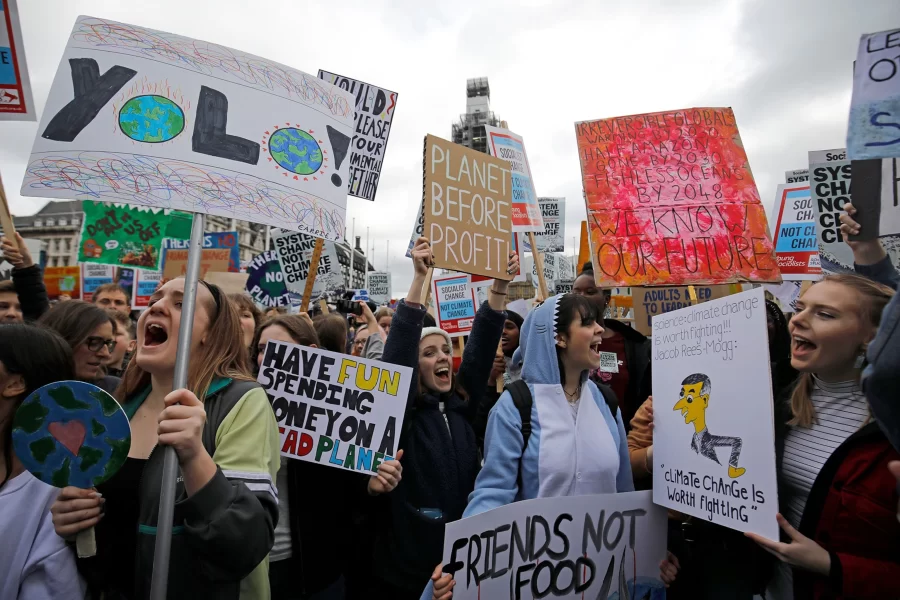The conversation around climate change has continuously been brought up to the younger generations—how to feel about it, and how to understand and deal with it. It’s clear that students have strong feelings about social issues as seen by the turnout for the School Strike for Climate protests started by Greta Thunberg.
After the world witnessed the sheer force that students can create, the protests started to slow down and lose traction, but that doesn’t mean that climate change has left students’ minds. Discussion over the existence of climate change still has its place among the student body, but many know that they’re the ones left to find a solution.
Unfortunately, climate change has become reliant on the political views of an individual. Science, in general, has somehow become a political issue itself, but climate change is such a huge issue that it should surpass political influence.
When questioned, students shared pessimistic thoughts about how society isn’t willing to change in order to accommodate the increasing risk of climate changes. This negative way of thinking about problems like climate change leads to inaction and helplessness when, in reality, there are ways to combat them. For example, something as simple as taking public transportation or biking helps cut back on carbon emissions.
Recycling is also a great way to preserve the environment. Recycling old paper, like old homework, is an easy way to start. Donating clothes that no longer fit or that aren’t needed not only helps the environment but other people, too— and I can guarantee that many students love to thrift for cool clothes.
Composting food is also a good way to combat pollution. Making compost for a garden and utilizing unused food makes for less food waste and a healthier environment. It could also be a very nutritious and healthy hobby if pursued.
Students, when properly motivated, can cause a lot of change. Student activism has been around since the sixteenth century with the 1507 student riot of the University of Padua in response to the cancellation of spring break. Students rising up for what they believe is a commendable action, and one that will probably never cease to exist. This thought is supported by the increase in student protests in recent years. If students were to try to cause a stir that would motivate actual and physical change to the systems around them perpetuating issues like climate change, it would need a lot of power behind it. The protests that Greta Thunberg started are, again, a great example. Her movement was worldwide and it gained a lot of traction, but it was lost soon after.
Students and young people are the inheritors of this planet and we need to start caring when our world needs us to care. We have the power to make the rich and powerful listen to what we say. We need to use our voice to help combat this issue that will affect us and the generations who follow.
Special thanks to everyone who agreed to be interviewed to make this article possible.



